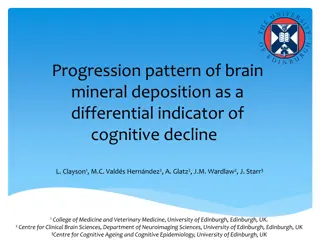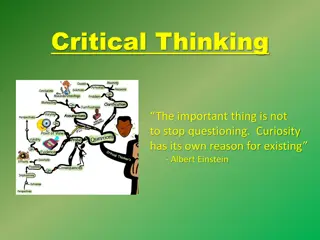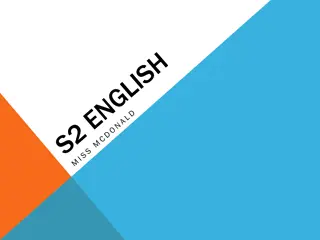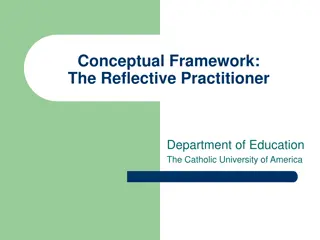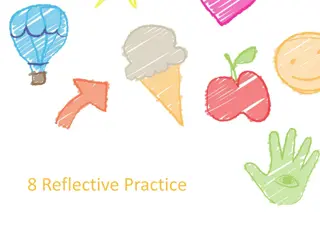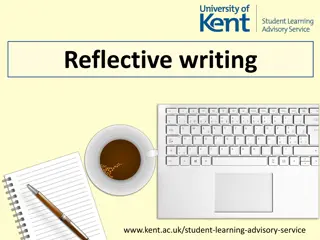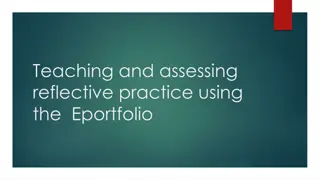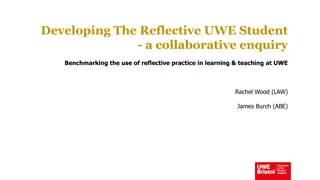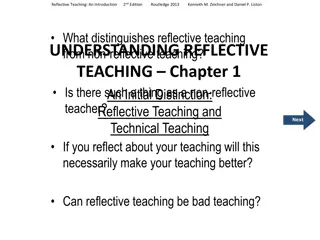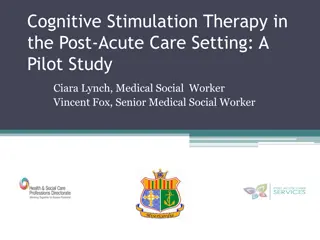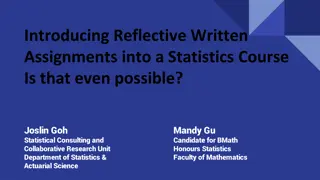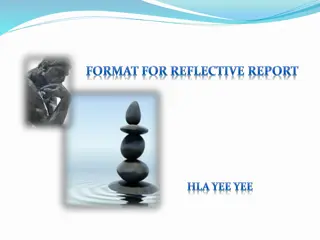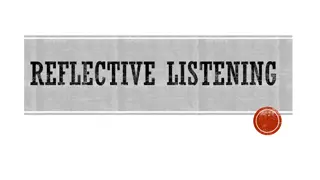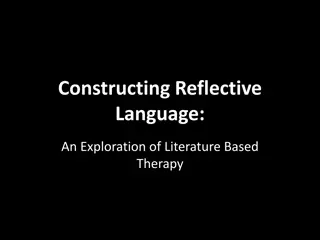Cultivating Reflective Thinking for Cognitive Growth
Fostering critical reflection and higher-order thinking skills is essential in education. Encouraging trainees to question assumptions, analyze information, and engage in critical reflection leads to cognitive development. Strategies like discussions, reflective writing, and utilizing Bloom's taxonomy can help in this process.
Download Presentation

Please find below an Image/Link to download the presentation.
The content on the website is provided AS IS for your information and personal use only. It may not be sold, licensed, or shared on other websites without obtaining consent from the author.If you encounter any issues during the download, it is possible that the publisher has removed the file from their server.
You are allowed to download the files provided on this website for personal or commercial use, subject to the condition that they are used lawfully. All files are the property of their respective owners.
The content on the website is provided AS IS for your information and personal use only. It may not be sold, licensed, or shared on other websites without obtaining consent from the author.
E N D
Presentation Transcript
The best thing any education can bequeath is the habit of reflection and questioning. A C Grayling 2000
HIGHER ORDER THINKING & COGNITIVE DEVELOPMENT C R I T I C A L T H I N K I N G C R I T I C A L R E F L E C T I O N Process of examining Process of examining assumptions and beliefs assumptions and beliefs and questioning them in and questioning them in order to learn or change order to learn or change behaviour behaviour For trainees, done through For trainees, done through introducing the idea, introducing the idea, coaching and coaching and encouraging them to encouraging them to think critically think critically Needs practice Needs practice Process of utilising logic Process of utilising logic and reasoning when and reasoning when assessing and working assessing and working with information with information Done through practising Done through practising critical thinking critical thinking techniques techniques Focused Focused
TRAINEE PERSPECTIVE If someone sits you down and asks you to reflect on a difficult case If someone sits you down and asks you to reflect on a difficult case until you can really express the feelings rather than what happened with a difficult case really express the feelings rather than what happened with a difficult case until you can Asking why was it difficult, what made it difficult, what helped you sort it out. Made it Asking why was it difficult, what made it difficult, what helped you sort it out. Made it click click Putting it in the thought process Putting it in the thought process what was going through your mind what was going through your mind If just left to me, the penny wouldn t have dropped. If just left to me, the penny wouldn t have dropped.
STRATEGIES Discussion Discussion individual or group individual or group Reflective writing exercises Reflective writing exercises Letters to successors Letters to successors Mind maps Mind maps Start with the end in mind Start with the end in mind Show as well as tell Show as well as tell
STRATEGIES Bloom s taxonomy: Bloom s taxonomy: Knowledge Knowledge Comprehension Comprehension Application Application Analysis Analysis Synthesis Synthesis Evaluation Evaluation Higher level questions: Higher level questions: Create: Create: Can you create new and unusual uses for .? Can you design a ..to ..? Evaluate: Evaluate: Do you agree with ? Prioritise How would you decide about ..? Analyse: Analyse: Classify according to . What solutions would you suggest for ..? Outline/ diagram .
WHAT? SO WHAT? NOW WHAT? What did I learn? What did I learn? So, what does it mean for me? So, what does it mean for me? in the context of the case, my learning, my practice, my feelings, my life in the context of the case, my learning, my practice, my feelings, my life Now, what am I going to do with what I have learned or experienced? Now, what am I going to do with what I have learned or experienced?


